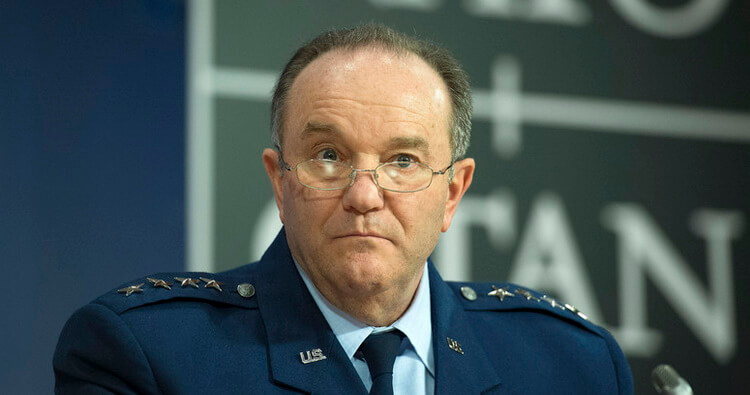
Gen. Philip Breedlove, the chair of the Middle East Institute’s Frontier Europe Initiative, a retired four-star general of the U.S. Air Force and a former NATO supreme commander in Europe published an article under a title – “The U.S. Can’t Afford To Ignore The Nagorno-Karabakh Conflict.”
Opinion: Gen. Philip Breedlove says many Americans may not realize that U.S. interests are also at stake as fighting rages between Armenia and Azerbaijan.
Here’s his argument for active U.S. diplomacy to de-escalate the conflict. https://t.co/t3XzfYi1xu
— NPR (@NPR) October 24, 2020
Gen. Philip Breedlove said, “for many Americans wrapped up in the presidential race, it may have been easy to miss, but fighting is once again raging in the South Caucasus over the disputed region of Nagorno-Karabakh.”
He noted that “what many Americans may not realize is that, in addition to the heavy toll in the region, U.S. interests are also at stake — including energy resources and the stability of the South Caucasus. The United States must put greater diplomacy to work to prevent a disaster.”
“The South Caucasus hosts critical energy and transportation infrastructure. Gas and oil pipelines carrying Caspian energy to Europe via Georgia and Turkey are key to reducing European dependence on Russian energy. The Baku-Tbilisi-Kars railway has played an important role in sending NATO supplies to Afghanistan, and loss or damage to this critical infrastructure would harm U.S. interests. Renewed hostilities would not only hurt the warring parties, both of which have contributed troops to American efforts in Afghanistan but also Georgia, a close U.S. ally, whose fortunes are deeply tied to regional stability,” stated Breedlove.
Philip Breedlove talked about “potentially even more concerning scenarios.”
“Should the conflict escalate further, it is likely to invite Russian military engagement and could have ripple effects for the wider region. So far, Russia, which has a large military presence and a binding military agreement with Armenia, has refrained from getting involved in the conflict directly, instead of calling twice for a cease-fire, although both attempts failed almost immediately,” said Breedlove.
The author of the article said that “the West has been slow to respond and is only lethargically engaged.” He stressed that “the South Caucasus has been one of the most volatile regions of the former Soviet Union and looks likely to remain so in the near future. Three conflicts — Nagorno-Karabakh, Abkhazia and South Ossetia — had been dormant, but the latest fighting makes clear that tensions can erupt at any time.”
“Russia, France and the United States — all part of the Minsk Group created by the Organization for Security and Cooperation in Europe in 1992 to work toward resolving the Nagorno-Karabakh dispute — have jointly called for a cease-fire. Yet the U.S. remains diplomatically disengaged from the region, weakening its position and limiting its ability to make real headway in dealing with this ongoing conflict,” stated Breedlove.
Gen. Philip Breedlove concluded that “for almost a quarter of a century, the United States had invested in the stability of the South Caucasus. It supported the independence of Georgia, Armenia and Azerbaijan and their pursuit of integration into Euro-Atlantic institutions. The large Armenian American community, regional energy projects, as well as the region’s expanding political ties with Georgia played an important role in U.S. efforts to engage there.”
“These efforts have yielded tangible fruit. Georgia’s progress toward Western values and strong support to NATO in Afghanistan bear witness to our investment. Now Georgia is willing to facilitate and be a part of conflict resolution in Nagorno-Karabakh. Western leaders should seriously consider this overture and the value of a trusted regional nation leading efforts to resolve the conflict.
Active U.S. diplomacy to de-escalate the conflict through the Minsk process and by working with all parties involved is essential. Great power support to local leadership such as that offered by trusted allies and partners like Georgia could be key,” stressed Breedlove.








